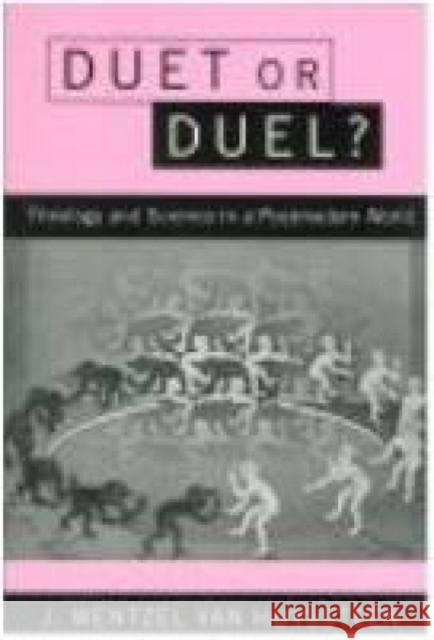Duet or Duel?: Theology and Science in the Postmodern World » książka
Duet or Duel?: Theology and Science in the Postmodern World
ISBN-13: 9780334027416 / Angielski / Miękka / 1998 / 208 str.
How can theology and science engage in dialogue in a postmodern world which is characterized by a great deal of fragmentation and pluralism? Is there ground to which they can move from their traditional duel to engage in a rewarding and friendly duet? Those are the questions discussed in this fascinating book, originally given as the John Albert Hall lectures for 1998. Dr Wentzel van Huyssteen first argues that many of the stereotyped ways of relating theology to science are overly simplistic generalizations about the complex relationship between the two disciplines. Moreover the postmodern mood challenges the very terms 'religion' and 'science'. He then goes on to discuss at length the very different views of Stephen Hawking and Paul Davies, in search of an epistemology which could be of use in an interdisciplinary discussion. This he finds in evolutionary epistemology, the significance that the theory of evolution by natural selection may have for philosophical epistemology, our theories of knowledge, and for the origin and development of human cognitive structures, maps and abilities. Before this final discussion there is an examination of Darwin and responses to him and an argument with Richard Dawkins.
How can theology and science engage in dialogue in a postmodern world which is characterized by a great deal of fragmentation and pluralism? Is there ground to which they can move from their traditional duel to engage in a rewarding and friendly duet? Those are the questions discussed in this fascinating book, originally given as the John Albert Hall lectures for 1998.Dr Wentzel van Huyssteen first argues that many of the stereotyped ways of relating theology to science are overly simplistic generalizations about the complex relationship between the two disciplines. Moreover the postmodern mood challenges the very terms religion and science. He then goes on to discuss at length the very different views of Stephen Hawking and Paul Davies, in search of an epistemology which could be of use in an interdisciplinary discussion.This he finds in evolutionary epistemology, the significance that the theory of evolution by natural selection may have for philosophical epistemology, our theories of knowledge, and for the origin and development of human cognitive structures, maps and abilities. Before this final discussion there is an examination of Darwin and responses to him and an argument with Richard Dawkins.











